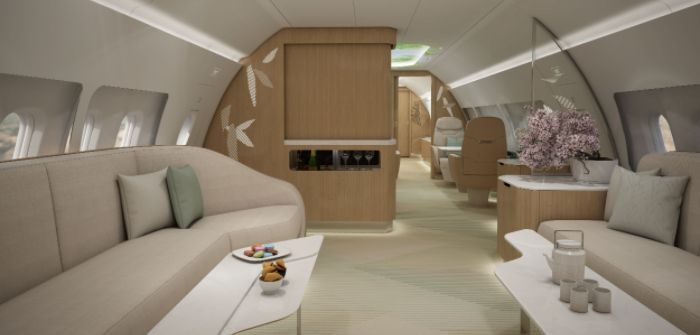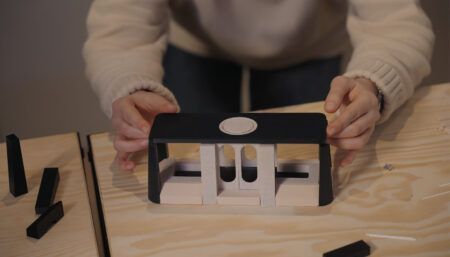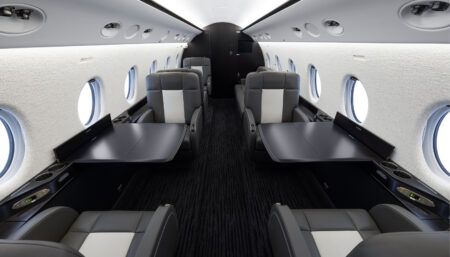Ameco and Lufthansa Technik have unveiled a narrow-body cabin concept called Nature’s Touch. The two companies formalized a cooperation to offer business aircraft services for Chinese clients at ABACE 2018. The concept was developed for the ACJ320, but could be adapted to the BBJ 737 airframe.
“The inheritance of intelligence and culture, and the combination of smartness and comfort in the cabin – all of this is the common expectation of Ameco and Lufthansa Technik technology,” said Feng Bin, deputy general manager of Ameco’s Beijing base and head of the aircraft cabin solutions product business unit. “The collision between the East and the West brings a new development direction for business jet cabin products.”
“With this new concept we want to showcase our joint vision for the next generation of cabin technology,” said Jan Grube, head of Asia sales at Lufthansa Technik. “Here, Chinese design and German technology play hand in hand. Lufthansa Technik’s many years of experience in perfect craftsmanship and engineering know-how and Ameco’s deep insights into the Chinese culture and customer wishes form a symbiosis that can fulfill every wish – expressed or unspoken – for Chinese customers.”
The cabin features a galley, a guest area, a lounge, a dining/meeting area, a cinema and a master bedroom. Flexible elements include a convertible divan, a coffee table in the multifunctional lounge, and a bar with transformable dividers.
Many traditional Chinese colors have been used, including creamy moonlight beige, bamboo green, jade and crimson. Subtle stripes simulating bamboo wood grain are complemented by natural materials including marble, leather, wool and silk. The aim was to include a diverse range of colors and textures to mirror the vitality of nature.
Bamboo, which stands tall and straight, has been a symbol of character since ancient times. Therefore, the designers extracted bamboo elements (such as the knuckles and leaves) and used them geometrically, to embody Eastern culture while achieving a modern aesthetic.
To create a convenient and comfortable flight experience, all interfaces are integrated into the cabin environment subtly. For example, there are hidden passenger system control (PCU) units, intelligent cabin signs, smart touchscreen desktops, smart window shade glass and ambient lights. Roll-up/down screen technology has been implemented in the cinema. The designers also envisage voice and gesture recognition being incorporated to simplify the CMS and IFE interface.
The cabin would offer various scenarios to correspond with passengers’ requirements. In business mode, the displays could show live data from global business networks, connected via cloud services. Passengers could charge their PEDs wirelessly on many horizontal surfaces, and take advantage of video conferencing and full connectivity provided by a high-speed internet connection. The lighting would also help to create a business-like ambience, while the integrated bar closes off the meeting area.
In a leisure and entertainment scenario, the cabin displays would show data from music and entertainment servers and visualize the music mood. Projections on the lining and ceiling could enhance the feeling of relaxation. The bar area would be open, with open roller shutters as well as a consistent lighting concept connecting the lounge with the dining area. A cinema room completes the entertainment package. It would feature a 75in screen, which the companies believe to be the largest in a narrow-body, as well as ambient lights and a new louvered ceiling concept.





